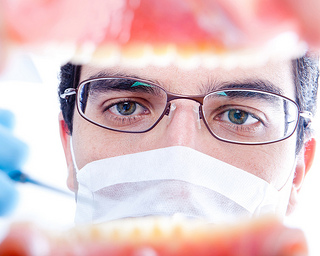Sealants: What are They and How do They Help?
November 7th, 2013

Molars are made up of canyons, caves, pits, and seemingly endless caverns that are a breeding ground for decay. The protective solution is a sealant. When done correctly, a sealant from Drs. Bonni Boone, Susan Cocquyt, and Lori Risser of Erskine Family Dentistry can be most effective in preventing cavities.
A sealant is made up of composite (a plastic-like) material that contains bonding agents to seal to the edge of the tooth. Sealants placed on the chewing surfaces of back teeth block food from being trapped. The process in which a sealant is placed is quite precise and painless.
First the tooth is cleaned with a sodium bicarbonate (baking soda) spray. Then an acid etch is applied to “roughen up” the surface. No saliva is to touch the tooth. This will re-mineralize the area, then a repeat etching is needed. An alcohol-based liquid then dries out the area and it must remain completely dry. The sealant is placed and guided through all the caverns, pits, fissures, and grooves. It is then cured with a special light, which makes it a hard, plastic-like material.
Sealants can last for several years. It is wise to have them examined on a semi-annual basis. If there is a break in the sealant, a high risk for decay is common. If a sealant is damaged, repair is simple, painless, and quick to complete.
Who can benefit from sealants? Anyone! Children often receive sealants as routine preventive care. Adults with deep canyons with stained grooves on their teeth can also benefit from a sealant. The process is quick, painless, and does not require any anesthesia. It is an effective way to lower dental restorative costs.
An investment in dental sealants can reap great benefits as properly cared for teeth will remain cavity free. Our South Bend, IN location is available to answer your questions so give us a call today!






























